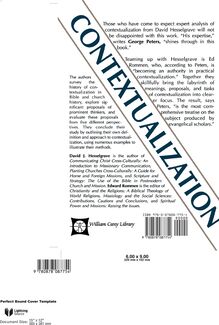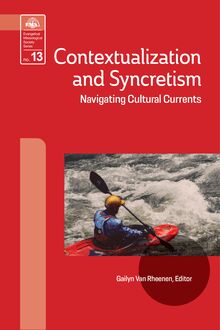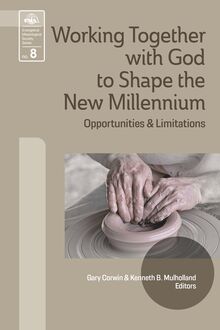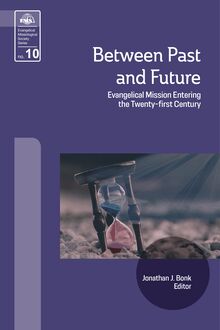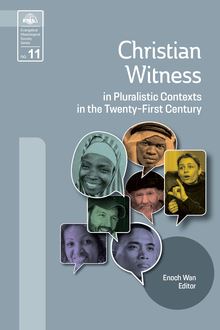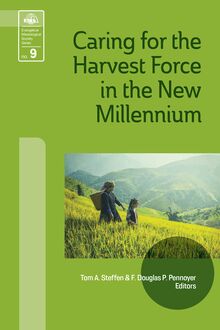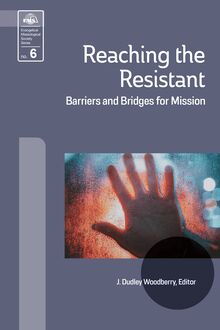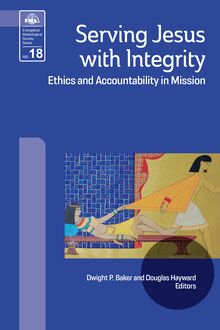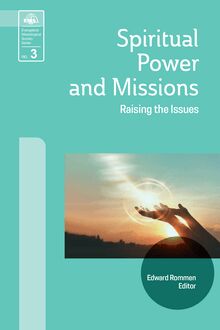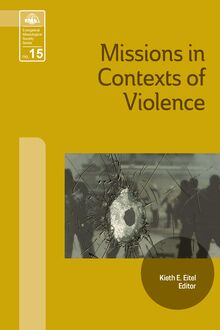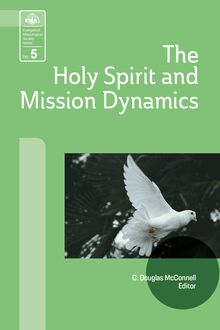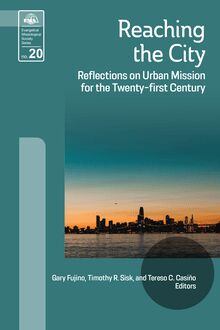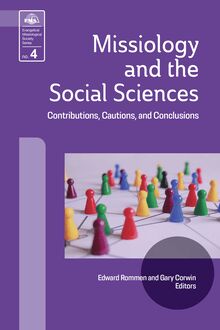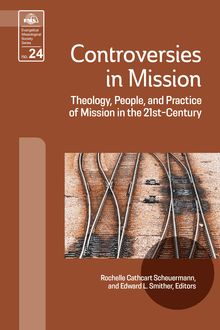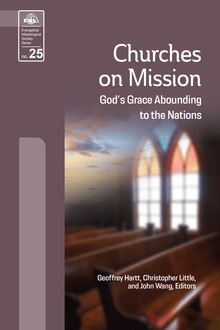-
 Univers
Univers
-
 Ebooks
Ebooks
-
 Livres audio
Livres audio
-
 Presse
Presse
-
 Podcasts
Podcasts
-
 BD
BD
-
 Documents
Documents
-
- Cours
- Révisions
- Ressources pédagogiques
- Sciences de l’éducation
- Manuels scolaires
- Langues
- Travaux de classe
- Annales de BEP
- Etudes supérieures
- Maternelle et primaire
- Fiches de lecture
- Orientation scolaire
- Méthodologie
- Corrigés de devoir
- Annales d’examens et concours
- Annales du bac
- Annales du brevet
- Rapports de stage
La lecture à portée de main
Vous pourrez modifier la taille du texte de cet ouvrage
Découvre YouScribe en t'inscrivant gratuitement
Je m'inscrisDécouvre YouScribe en t'inscrivant gratuitement
Je m'inscrisEn savoir plus
Vous pourrez modifier la taille du texte de cet ouvrage
En savoir plus

Description
Sujets
Informations
| Publié par | William Carey Publishing |
| Date de parution | 15 septembre 1997 |
| Nombre de lectures | 0 |
| EAN13 | 9780878089963 |
| Langue | English |
Informations légales : prix de location à la page 0,0550€. Cette information est donnée uniquement à titre indicatif conformément à la législation en vigueur.
Extrait
The HOLY SPIRIT and MISSION DYNAMICS
OTHER TITLES IN EMS SERIES
#1 SCRIPTURE AND STRATEGY: The Use of the Bible in Postmodern Church and Mission, by David J. Hesselgrave
#2 CHRISTIANITY AND THE RELIGIONS: A Biblical Theology of World Religions, Edward Rommen and Harold Netland, Editors
#3 SPIRITUAL POWER AND MISSIONS: Raising the Issues, Edward Rommen, Editor (now Out of Print)
#4 MISSIOLOGY AND THE SOCIAL SCIENCES: Contributions, Cautions and Conclusions, Edward Rommen and Gary Corwin, Editors
The HOLY SPIRIT and MISSION DYNAMICS
C. Douglas McConnell Editor
Evangelical Missiological Society Series #5
P.O. BOX 40129 PASADENA, CALIFORNIA 91114
Copyright 1997 by Evangelical Missiological Society
All Rights Reserved
No part of this publication may be reproduced, stored in a retrieval system, or transmitted in any form or by any means—electronic, mechanical, photocopy, recording, or any other—except for brief quotations embodied in critical articles or printed reviews, without prior permission of the publisher.
EMS Series #5
Published by William Carey Library 1605 E. Elizabeth Street Pasadena, CA 91104 | www.missionbooks.org
William Carey Library is a ministry of Frontier Ventures Pasadena, CA | www.frontierventures.org
Digital eBook release Primalogue 2016 ISBN: 978-0-87808-996-3
Library of Congress Cataloging-in-Publication Data The Holy Spirit and mission dynamics / C. Douglas McConnell, editor. p. cm. -- (Evangelical Missiological Society series; no. 5) Includes bibliographical references. ISBN 0-87808-379-0 (alk. paper) 1. Missions--Theory. 2. Holy Spirit. L McConnell, C. Douglas, 1951-. II. Series. BV2063.H65 1997 266’.001--dc21 97-28933 CIP
Contents
Preface
C. Douglas McConnell
Author Profile
Part I Biblical Theological Issues
1. Missiology and Spiritual Dynamics
Michael Pocock
2. The Role of the Holy Spirit in Missions
Robertson McQuilkin
3. Confidence in the Spirit as the Governing Ethos of the Pauline Mission
Don N. Howell, Jr.
Part II Historical Issues
4. The Radical Strategy in Modern Mission: The Linkage of Paranormal Phenomena with Evangelism
Gary B. McGee
5. The Spirit the Source and Test of New Forms of Missionary Activity
Roland Allen
Part III Contemporary Issues
6. Contemporary Dynamics of the Holy Spirit in Missions
C Peter Wagner
7. Broadening the Issues: Historiography, Advocacy, and Hermeneutics
A. Scott Moreau
8. Spiritual Warfare, Epistemology, and the Missiological Community
Robert J. Priest
9. Identificational Repentance & Strategic Spiritual Warfare: A Hermeneutical Case Study
John H. Onne
10 Modern and Postmodern Syncretism in Theology and Missions
Gailyn Van Rheenen
End Notes
PREFACE
C. Douglas McConnell
As I passed by a classroom on the campus of Fuller Seminary in early 1985, I wondered what or who in the world could draw so many students that they would be hanging out of the door. It seemed odd to me that a seminary class, despite the excellent teachers, would have students so interested that they would actually be standing due to lack of seating. My experience was that standing was a method of handling early or late classes, perhaps even a particular lecturer. But this class was definitely unique. So what was it? It was MC510, Signs, Wonders, and Church Growth. C. Peter Wagner and John Wimber had designed a course in which they examined the role of the Holy Spirit in church growth and missions. As popular as it was with the students, it was equally controversial with the faculty. By 1986, the course had stimulated so much heated discussion that it was withdrawn from the course schedule and the proponents were left to find another curricular approach to deal with the subject.
It appears that the controversial nature of this subject has lost little of its steam in ten years. If anything, it has gained both momentum and profile within the missions community. In a crowded room in Orlando last September, delegates to the triennial conference of the Evangelical Fellowship of Mission Agencies, the Evangelical Missiological Society, and the Interdenominational Foreign Missions Association demonstrated the range of interest shown at Fuller. Wagner kicked off the session with his personal pilgrimage of discovery (chapter six of this volume), followed by responses from four missiologists coming from very different backgrounds and perspectives. The discussion which followed reinforced the observation that interest and controversy continue to surround the work of the Holy Spirit and the dynamics which affect missions today.
Unfortunately, over the past decade there have been few forums in which the controversial nature of the subject could be openly discussed. During the 1994 annual EMS conference, the subject surfaced through a paper which challenged the theory and practice of a number of missiologists. Despite the careful work by the scholars in preparing the paper, there was no real dialogue during the meeting. In fact, the controversial aspects were heightened to the point that the third volume of the EMS series was published as a means of raising the issues within the evangelical missiological community. 1 With the publication of this volume, the dialogue reaches a new level. The ten chapters included here represent an attempt to reflect the concerns and the present understanding of evangelical missiologists, at least those who participated in the conference.
The discussion of the issues which emerge in the three sections of this volume are far from over. In fact, it would benefit all of us if we could continue the dialogue in forums and subsequent publications, particularly the issues of advocacy, epistemology, hermeneutics, historiography, philosophy, and theology raised in part three. Perhaps Gary McGee stated it best in the conclusion of his article,
Today, the increasing interest in strategic-level spiritual warfare has raised major questions about the believer’s authority over the powers of darkness. This requires that related exegetical, theological, and missiological issues receive careful and irenic scrutiny by both practitioners and scholars. Their dialogue on ministry in the power of the Spirit offers a unique opportunity for evangelical Christians of all persuasions to grow in mutual understanding, work together for the advancement of the kingdom of God, and realize greater unity in the body of Christ.
If the EMS can become such a forum and provide the opportunity to publish carefully written contributions to the dialogue, then it will indeed fill a unique need in the missions community.
In any compilation of articles such as this one, the editor has the daunting task of trying to arrange the individual contributions within the framework of a set topic. In an effort to impose a standard format, we used both The Tyndale Manual of Style (1991) and the Publication Manual of The American Psychological Association , 4th edition, (1994). I would like to acknowledge the contribution of Gary Corwin and Jim Reapsome, members of the ad hoc editorial committee, who greatly assisted in the structure and content of this volume. I was also encouraged in my efforts by Gailyn Van Rheenen, publications committee chair, and the executive of the EMS. Finally, the vital contributions of Emily Moreau, as technical reader, and the administrative assistance of Carol Fowler and Janna McConnell are greatly appreciated.
AUTHOR PROFILES
Roland Allen (1868-1947), was a British missionary statesman and author. He was an ordained Anglican minister and served as a missionary in China.
Don N. Howell, Jr . is Professor of Bible, Greek, and Theology, and Assistant Dean of the Seminary. He has served as a missionary in Japan.
C. Douglas McConnell is an Associate Professor of Missions & Intercultural Studies and Department Chair at Wheaton College. He served as a missionary in Australia and Papua New Guinea. He is the editor of the Occasional Bulletin of the EMS.
Gary B. McGee is a Professor of Church History at the Assemblies of God theological Seminary. He is an ordained minister and has consulted widely with the Division of Foreign Missions for The General Council of the Assemblies of God.
Robertson McQuilkin is the President Emeritus of Columbia International University. He served as a missionary in Japan and as the Executive Director of the EMS.
A. Scott Moreau is an Associate Professor of Missions and Intercultural Studies at Wheaton College. He served as a missionary in South Africa and Kenya.
John Orme is the Executive Director of the Interdenominational Foreign Mission Association. He served as a missionary in Guatemala.
Michael Pocock is Professor and Chairman of Wodd Missions and Intercultural Studies at Dallas theological Seminary. He served as a missionary in Venezuela. He is the President of the EMS.
Robert J. Priest is an anthropologist and an Associate Professor of Missions and Intercultural Studies at Columbia International University. He has done field work in South America.
Gailyn Van Rheenen is an Associate Professor of Missions at Abilene Christian University. He served as a missionary in Uganda and Kenya. He is the Chairman of the Publications Committee of the EMS.
C. Peter Wagner is the Donald A. McGavran Professor of Church Growth and Dean of Fuller Colorado at Fuller Theological Seminary. He served as a missionary in Bolivia.
PART I BIBLICAL THEOLOGICAL ISSUES
Our starting point for the study of the Holy Spirit and mission dynamics is Scripture. A biblical theological perspective provides us with the necessary understandings from which to assess the phenomena we observe in both history and our contemporary mission practice. In this section, Michael Pocock gives an overview of the critical issues facing the missions community. He takes a careful look not only at the dynamics of missions, but also reminds us that missions is a “project authorized by God.”
In looking at the
-
 Univers
Univers
-
 Ebooks
Ebooks
-
 Livres audio
Livres audio
-
 Presse
Presse
-
 Podcasts
Podcasts
-
 BD
BD
-
 Documents
Documents
-
Jeunesse
-
Littérature
-
Ressources professionnelles
-
Santé et bien-être
-
Savoirs
-
Education
-
Loisirs et hobbies
-
Art, musique et cinéma
-
Actualité et débat de société
-
Jeunesse
-
Littérature
-
Ressources professionnelles
-
Santé et bien-être
-
Savoirs
-
Education
-
Loisirs et hobbies
-
Art, musique et cinéma
-
Actualité et débat de société
-
Actualités
-
Lifestyle
-
Presse jeunesse
-
Presse professionnelle
-
Pratique
-
Presse sportive
-
Presse internationale
-
Culture & Médias
-
Action et Aventures
-
Science-fiction et Fantasy
-
Société
-
Jeunesse
-
Littérature
-
Ressources professionnelles
-
Santé et bien-être
-
Savoirs
-
Education
-
Loisirs et hobbies
-
Art, musique et cinéma
-
Actualité et débat de société
- Cours
- Révisions
- Ressources pédagogiques
- Sciences de l’éducation
- Manuels scolaires
- Langues
- Travaux de classe
- Annales de BEP
- Etudes supérieures
- Maternelle et primaire
- Fiches de lecture
- Orientation scolaire
- Méthodologie
- Corrigés de devoir
- Annales d’examens et concours
- Annales du bac
- Annales du brevet
- Rapports de stage
